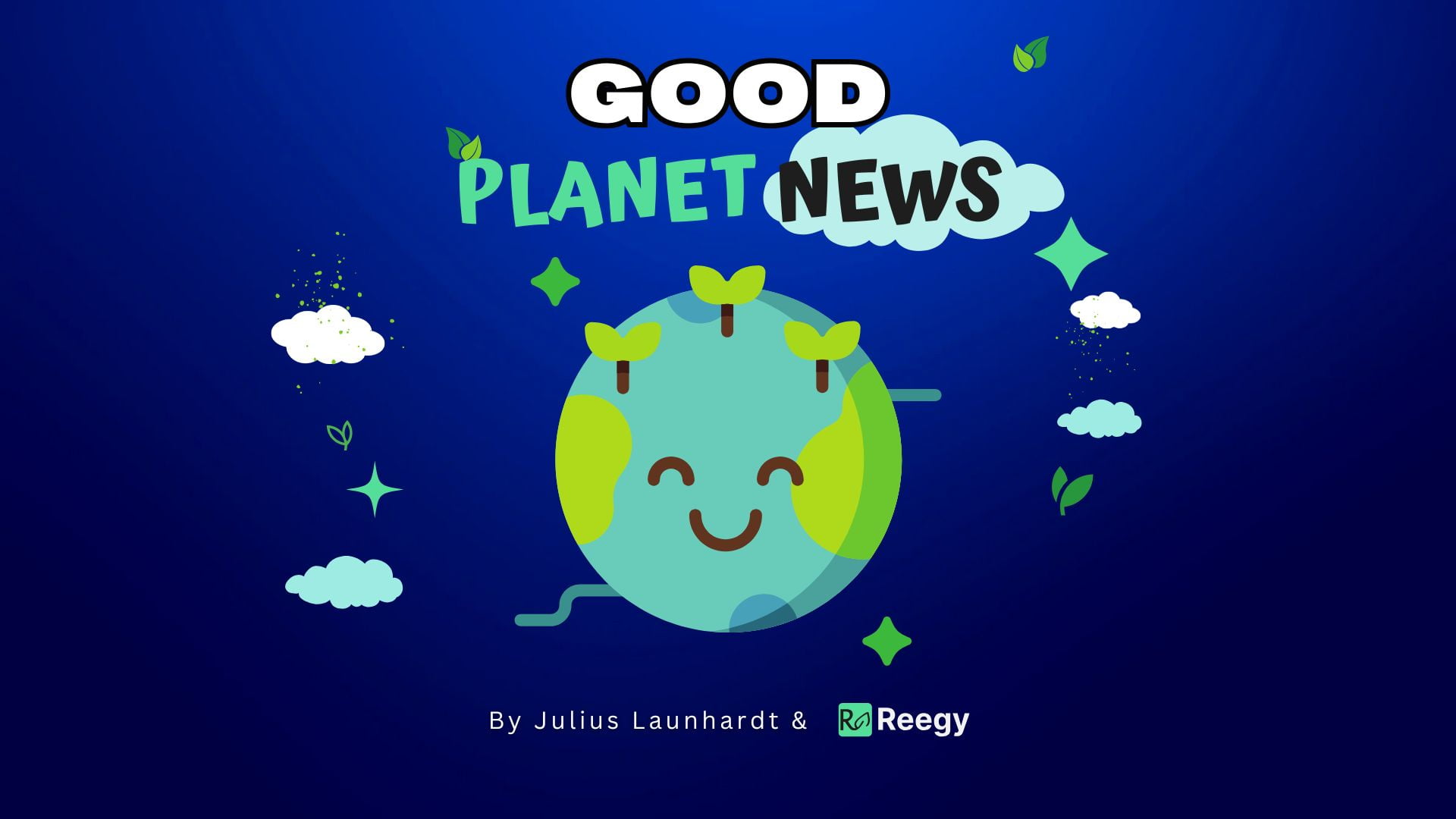
Let’s start the weekend with some really good news about our planet and our Episode #3 of the Good Planet News! In the past week, several encouraging strides have been made in the realms of climate action, sustainability, and environmental protection.
1. United States Sets Ambitious New Climate Targets
In the final weeks of President Joe Biden’s administration, the United States has announced strengthened greenhouse gas emissions targets. The new goals aim for a 61-66% reduction in economy-wide emissions and a 35% cut in methane emissions by 2035, with the ultimate objective of achieving net-zero emissions by 2050.
This initiative strives to underscore the commitment to addressing climate change and sets a precedent for future policies.
💡 The future of US climate goals is very uncertain but it’s great to see this last effort by the Biden administration to set the path!
🔗 Read more: Financial Times
2. UN Advocates for Integrated Environmental Solutions
The United Nations’ biodiversity science panel, Ipbes, has released a powerful report that emphasizes the need for a holistic approach to our biggest environmental challenges. The message is clear: focusing on one issue, like climate change, without addressing biodiversity or water scarcity could actually harm the planet. Instead, the report promotes solutions that tackle climate, biodiversity, water, food, and health together—like agroforestry and nature-friendly renewable energy.
Here are the key positive takeaways:
- Collaborative Solutions: The report identifies over 70 actionable, integrated solutions that can deliver multiple benefits across environmental and societal domains. This reflects a proactive roadmap for addressing interconnected challenges.
- Economic Benefits of Integration: By highlighting the enormous costs of fragmented approaches ($10-25 trillion annually), the report underscores the potential for massive savings and economic efficiency through cohesive policies.
- Focus on Nature-Based Solutions: The promotion of agroforestry, ecosystem restoration, and nature-friendly renewable energy shows the potential for sustainable practices to meet human needs while protecting biodiversity.
- Holistic Policy Advocacy: The push for policies that break down silos between climate, biodiversity, health, and food sectors offers a hopeful vision of a future where cooperation leads to greater resilience and sustainability.
- Global Call to Action: By framing these solutions within a shared global responsibility, the report inspires collective efforts toward planetary health and well-being.
The report provides a clear pathway to a more sustainable future, leveraging the interconnectedness of environmental and societal challenges to create impactful, synergistic solutions.
💡 What’s really exciting here is the idea of collaboration—not just between governments, but across sectors like energy, agriculture, and health. This report is a wake-up call that piecemeal solutions aren’t enough. The future needs teamwork!
🔗 Read more: ipbes
3. UK Government Announces Clean Energy Initiative
The UK government has introduced its ambitious “Clean Power 2030 Action Plan,” aiming for 95% clean electricity by 2030. This includes new powers for ministers to approve onshore wind projects, alongside major investments in offshore wind, solar, and nuclear energy. There’s also a focus on streamlining the planning process and upgrading the grid to support renewable energy.
💡 This is huge! Not only is this a leap toward decarbonizing the UK’s energy system, but it also highlights how clean energy can drive economic growth and stabilize prices. A win-win for the planet and the economy.
🔗 Read more: gov.uk
4. EU Proposes Overhaul of Sustainable Finance Fund Rules
The European Union’s advisers have recommended a comprehensive revision of the Sustainable Finance Disclosure Regulation (SFDR) to enhance clarity and reduce greenwashing. The proposal suggests replacing the current Article 8 and 9 classifications with three new categories: “Sustainable,” “Transition,” and “ESG Collection.” This restructuring aims to provide investors with a clearer understanding of fund sustainability metrics, thereby improving transparency in sustainable investments.
💡 The EU is taking more steps toward restoring trust in ESG investments and we love that!.
🔗 Read more: Reuters
Make your own good news for the planet
These three stories highlight ongoing efforts to promote sustainability, ESG, and especially environmental responsibility across various sectors. We’d love to feature your good news for the planet here next time! Send us your story and how you did it!
Nothing to talk about yet? In that case, let’s talk about how Reegy can help you make an impact that’s newsworthy!
Subscribe to our email list to get good planet news from our CEO Julius Launhardt straight to your inbox!
Reegy is a complete software solution for ESG & Carbon Footprint Management. Our Reegy Eco Hub enables enterprises, financial institutions and governmental organizations to manage their climate action in one central location along the entire value chain. Track, measure, reduce, and offset your carbon emissions, disclose them to regulators, stakeholders, and customers and lead your company to Net Zero on autopilot!